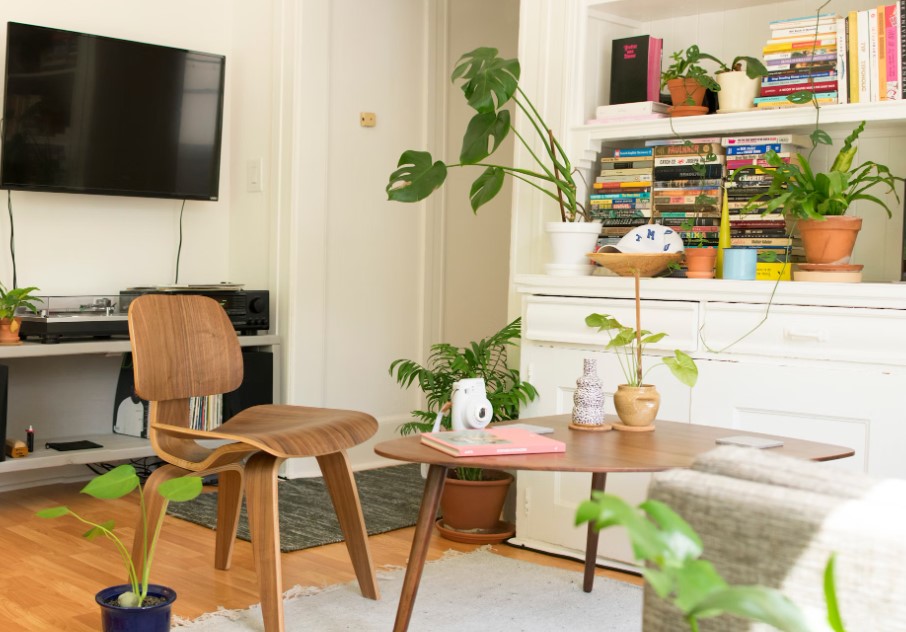Breathing clean air is essential for our well-being. But did you know that the air inside your home can be more polluted than the air outside? With more people spending time indoors than ever before, maintaining good indoor air quality is crucial. In this blog post, we will explore simple, yet effective strategies to enhance indoor air quality, ensuring a healthier living environment for you and your loved ones.
The Importance of Indoor Air Quality
Indoor air quality (IAQ) directly impacts our health and comfort. Poor IAQ can lead to various health issues such as allergies, asthma, respiratory infections, and even heart disease. By implementing strategies to improve IAQ, you can create a safer and more comfortable home environment.
Identify and Reduce Pollutants
Common Indoor Pollutants
Indoor air pollutants come from various sources, including:
- Tobacco smoke
- Cleaning products
- Pet dander
- Mold and mildew
- Pesticides
Understanding these sources helps you take steps to minimize or eliminate them.
Control Humidity Levels
High humidity can promote mold growth and dust mites, which contribute to poor IAQ. Use dehumidifiers to maintain indoor humidity levels between 30% and 50%. In humid areas like Hawaii, addressing humidity is especially important. For example, ensuring your HVAC system is in good condition can help. If you’re having issues with your system, consider reach in cooler repair in Hawaii.
Avoid Synthetic Fragrances
Many air fresheners and scented candles release volatile organic compounds (VOCs) that degrade indoor air quality. Opt for natural alternatives like essential oils or potpourri.
Ventilation is Key
Open Windows and Doors
Simple actions like opening windows and doors can significantly improve ventilation. It allows fresh outdoor air to replace stale indoor air.
Use Exhaust Fans
Install exhaust fans in bathrooms and kitchens to remove moisture and odors. Make sure they vent outdoors and not into another part of the house.
Invest in an Air Purifier
Air purifiers with HEPA filters can trap small particles, including allergens and pollutants. Place them in rooms where you spend the most time, such as the living room or bedroom.
Regular Maintenance and Cleaning
Change HVAC Filters
HVAC systems circulate air throughout your home. Regularly changing filters prevents dust and other particles from recirculating. Check filters monthly and replace them every three months or as recommended.
Clean Carpets and Rugs
Carpets and rugs can harbor dust, pet dander, and other allergens. Vacuum regularly and consider professional cleaning every six to twelve months.
Wash Bedding and Curtains
Bedding and curtains can also collect dust and allergens. Wash them frequently in hot water to kill dust mites.
Houseplants and Their Benefits
Natural Air Purifiers
Certain houseplants can improve IAQ by absorbing pollutants and releasing oxygen. Some effective options include:
- Spider plants
- Snake plants
- Peace lilies
Care and Maintenance
While houseplants can help purify the air, they also require care. Ensure proper watering and sunlight to keep them healthy.
Avoid Overwatering
Overwatering plants can lead to mold growth, negating their air-purifying benefits. Make sure to follow proper watering guidelines for each plant.
Choose Low-VOC Products
Paints and Finishes
When painting or finishing furniture, opt for low-VOC or VOC-free products. These release fewer harmful chemicals into the air.
Cleaning Supplies
Select natural or eco-friendly cleaning products. Many conventional cleaners contain harsh chemicals that can worsen IAQ.
Furniture and Carpets
Look for furniture and carpets labeled as low-emission or environmentally friendly. These products emit fewer pollutants.
Monitor Indoor Air Quality
Use IAQ Monitors
IAQ monitors can detect levels of common pollutants, such as carbon dioxide and VOCs. These devices provide real-time data, helping you take immediate action if levels are high.
Regular Inspections
Schedule regular inspections of your home’s ventilation, HVAC system, and other potential sources of pollution. Identifying issues early can prevent larger problems down the road.
Professional Assessments
Consider hiring a professional to assess your home’s IAQ. They can provide detailed recommendations tailored to your specific needs.
Educate Household Members
Awareness and Participation
Educate everyone in your household about the importance of IAQ. Encourage them to adopt practices that support a healthier indoor environment.
Establish Routines
Create routines for activities that impact IAQ, such as cleaning schedules and maintenance checks. Consistent efforts from all household members can make a significant difference.
Lead by Example
Set an example by practicing good habits, like not smoking indoors and using natural cleaning products. Your actions can influence others to follow suit.
Conclusion
Improving indoor air quality doesn’t have to be complicated. By taking small, consistent steps, you can create a healthier living environment. From reducing pollutants and improving ventilation to using houseplants and low-VOC products, there are plenty of ways to enhance IAQ. Start implementing these strategies today and breathe easier knowing you’ve made a positive impact on your home’s air quality.
